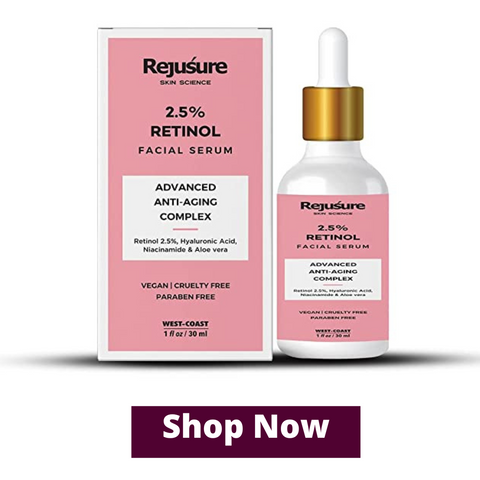Vitamin A Enriched Food That Are Beneficial for Skin
Vitamin A is a fat-soluble vitamin essential for skin, eye, reproductive health, and immune function. It also supports healthy skin cell growth and prevents skin damage. Vitamin A is considered a provitamin, meaning the body must convert it into another form before being used by the body. Vitamin A is found in foods such as liver, butter and eggs; however, our diet provides less than what’s needed for optimal health because our bodies can’t convert all of it into retinol (the active form). Vitamin A deficiency can led to dry, scaly skin, hair loss, and eye problems such as night blindness or pink eye. Vitamin A deficiency can also cause poor wound healing and an increased risk of wound infection. The symptoms of vitamin A deficiency can vary depending on how low your intake is.
Still, it's generally characterized by dryness, scaling and flaking of the skin (especially around the mouth). Vitamin A is considered a provitamin, meaning the body must convert it into another form before being used by the body. Vitamin A is found in foods such as liver, butter and eggs; however, our diet provides less than what's needed for optimal health because our bodies can't convert all of it into retinol (the active form). The recommended daily intake of vitamin A is 2,000 IU (international units) for children ages 1-3 years old and 4,000 IU for children ages 4-8. This amount can be increased to 4,000 IU for children 9+ years old if pregnant or breastfeeding.
Benefits:
Vitamin A is a group of essential nutrients for normal growth and development. Vitamin A also protects against sun damage and other external factors that can cause premature ageing.
Supports healthy vision:
Vitamin A helps maintain healthy vision by promoting clear eyesight, night vision and optimal eye health. This means you can see better at night and in low light conditions like dusk or dawn.
Maintains healthy mucous membranes:
Mucous membranes in your nose, throat, lungs and intestines rely on vitamin A for their health and function. Suppose you have any of these areas affected by disease or infection. In that case, vitamin A will be required for recovery/recovery from illness or infection and protect against further irritation during healing processes (e.g., ulcers).
Maintains healthy skin:
Vitamin A can be beneficial for your skin. It is a natural antioxidant that helps to reduce the signs of ageing, promote cell production and maintain healthy skin. Skin cells regenerate every two weeks, which means that you should be replacing all of your skin cells on a daily basis. In addition, you need to protect your skin from harmful free radicals in the environment through sun exposure and dry air. Vitamin A helps to combat these free radicals by protecting the skin against oxidative stress.
Powerhouse of antioxidants:
Vitamin A is a powerhouse of antioxidants that can help protect your skin against free radicals. These free radicals are caused by exposure to the sun, pollution and stress. Free radicals are thought to be responsible for many of the signs of ageing, including sagging skin, wrinkles and dryness. Vitamin A consists of retinal, retinol, and retinoic acid that helps protect your cells from these damaging free radicals by increasing their antioxidant activity.
Vitamin A enriched food for healthy, clear skin:
Tomatoes:
Tomatoes are used in most DIY beauty treatments. Tomatoes help cure large pores, treat acne, heal dull skin, combat inflammation, and soothe sunburn. Along with Vitamin A, they also contain antioxidants and Vitamin C. Rubbing tomatoes daily on your face helps tighten the pores. This tangy veggie is an effective way to heal and clarify your skin.

Sweet potatoes:
This starchy and sweet root vegetable is a high source of Vitamin A, as it contains high levels of beta-carotene. Also, it has Vitamin C and E that help you give soft, supple skin. In addition, it helps boost collagen that tightens your skin pores, and the antioxidants give you a natural shine. Sweet potatoes also protect your skin from sunburn, dryness, and wrinkles.

Carrots:
The high-in beta carotene vegetable consists of skin-friendly nutrients. You can have this in several forms like salad, juice, or with any other curries. The antioxidants protect your skin from damage. Also, the vitamin A in carrots promotes gut health and prevents constipation. Carrot juice also helps protect your skin from Ultra Violet Rays and provides skin elasticity.

Papaya:
Papaya consists of papain and chymopapain, which are strong exfoliators and help remove dead cells. In addition, the richness of Vitamin A in Papaya helps combat inflammation and provides smooth, nourished skin. Also, papaya helps to remove excess sebum production and reduce acne. Papaya also helps remove damaged keratin, preventing small bump buildups on the skin.

Broccoli:
Broccoli contains many vitamins and minerals that boost your overall skin health. You can add this veggie to salad, pizzas, pasta, and many other dishes. Broccoli contains lutein, which protects the skin from oxidative damage and helps cure wrinkled skin.

Along with your healthy diet, you can boost your skincare routine by adding some Vitamin A serum to get effective results. For example, adding Rejusure's 2.5% Retinol Face Serum will help you get rid of fine lines, acne, wrinkles, and pigmentation, and it also will increase the skin hydration level. This serum consists of Vitamin A, Vitamin E oil, Aloe extract, and Hyaluronic acid.





.png?v=1715004186)




